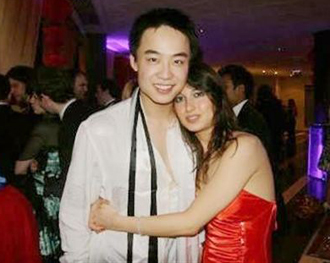Few scenarios would be as ironic as having the son of deposed party boss Bo Xilai seek asylum in the US on grounds that he may be persecuted at home for his father’s Maoist views.
But that’s the scenario that appears to be developing after Bo’s son Guagua, 24, was escorted from his deluxe apartment near Harvard by US agents on the night of April 12.
“He did not look frightened, but rather he seemed anxious to go with them,” said an anonymous source at the scene quoted by the London Daily Telegraph. “He was accompanied by a female friend.”
Guagua was getting ready for final exams for a Harvard masters degree at the time he was escorted out and driven away at around 10pm in a dark SUV by an officer wearing a badge, according to the same source. Bo Guagua has been enrolled in a master’s course in public administration at Harvard’s Kennedy School of Government.
The FBI did not confirm whether an agent from its Boston office had escorted Guagua as has been speculated by the Daily Telegraph.
The young man had been living in a luxury two-bedroom apartment on the ground floor of a seven-story building near the Harvard campus for which he was paying US$2,950 a month. The building features a doorman, gym and a roof sundeck. Guagua was known to frequently order take-out meals for dinner parties at his apartment from a nearby restaurant whose staff knew him as “the Chinaman”, according to a restaurant employee.
Bo Guagua’s reputation as a flamboyant partier since his days at Lodon’s Harrow School and at Oxford University had been a source of online gossip. But since his father and mother Bo Kailai were detained in March on suspicion of abuse of power and of a hand in the death of Briton Neil Heywood, the media has intensified coverage of Guagua in an entirely different vein — how his expensive education and lavish lifestyle could have been funded by Bo Xilai’s modest government salary.
The tuition at Harvard alone comes to $90,000, while his 8 years in England would have totaled upwards of a million dollars, including living expenses. The young man has always maintained that the education since the age of 14 has been funded through scholarships. But accounts of his dissolute lifestyle and apparent lack of interest in academics have prompted most observers to question that claim.
As part of its current investigation into possible wrongdoing by the Bo family, the central government has begun to uncover evidence that upwards of $1.2 billion in wealth has been transferred out of China by various members of Bo’s extended family as well as by Neil Heywood, the Briton’s whose suspicious death last November in a Chungqing hotel room has become the undoing of Bo’s promising career as a politician on the way to being named to the 9-member Standing Committee of the Politburo which essentially rules China.
Under these circumstances, a return to China by Bo Guagua may lead to his being detained along with his parents and a number of their close business associates and political allies. Guagua would therefore have a solid basis for seeking asylum. Being in the US on an F2 student visa he could apply for asylum “affirmatively” rather than subject himself first to deportation proceedings, according to legal expert Bruce Einhorn of Pepperdine University.
“If you can establish that there is a well-founded fear you would be persecuted in China because you would be imputed with the subversive or corrupt political views of your father, you would be just as eligible for asylum,” Einhorn told the Daily Telegraph.
But an earlier report by the London Times quoted Bo Guagua as denying that he was under US protection or that he has any intention to seek asylum.
Given Bo Xilai’s well-known crusade as Chongqing party boss to lionize himself in the mass media by successfully rallying support by espousing the communist doctrines of Mao Zedong while stashing vast wealth for his family, a claim for asylum by Guagua on the basis of his father’s political views — while a gratifying prospect to many in the US — would raise a highly ironic and entertaining scandal to the level of true geopolitical farce. That’s especially true because what has become China’s biggest scandal of the past decade all began in February with the unsuccessful attempt by Wang Lijun to seek asylum at the US consulate in Chengdu.


